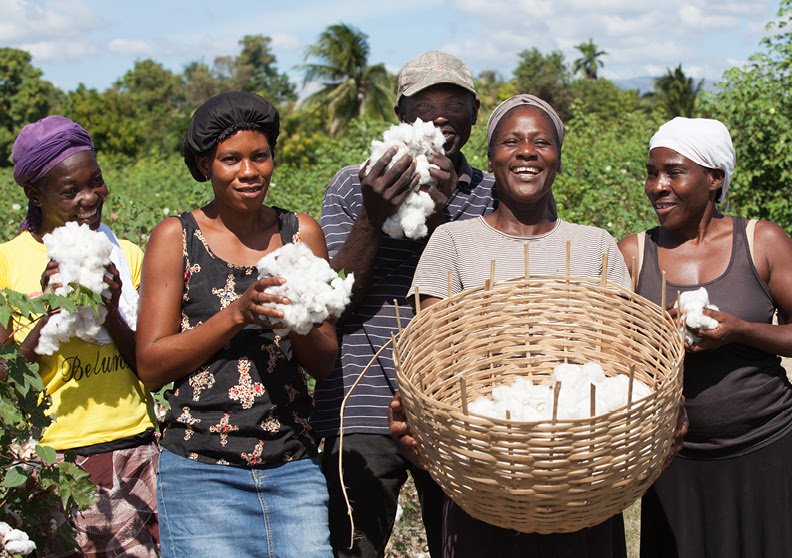 |
|
Haitian smallholder Nerlande Dautarn holds a basket of cotton she and other farmers harvested at the Smallholder Farmers Alliance (SFA) cotton field trial site near Gonaives, Haiti. Photo credit: Thomas Noreille / SFA.
|
 |
|
|
Carmel André Beliard, Minister of Agriculture, Natural Resources and Rural Development; Hugh Locke, President of SFA; Pierre Marie Du Mény, Minister of Commerce and Industry; Timote Georges; Executive Director of SFA.
|
The tree currency model has already resulted in the planting of over 6.5 million trees since the SFA launched in 2010 with the corporate support of Timberland. Now that Timberland is switching from being a sponsor to becoming a client for organic cotton (subject to quality and price) and enlisting other companies to help build an export market, the SFA estimates that around 25 million more trees will be planted over the next 5 years.
 |
|
|
Timote Georges; Pierre Simon Georges, Minister of Environment; Hugh Locke.
|
Resources and Rural Development, and Pierre Marie Du Mény, Minister of Commerce and Industry, at a meeting convened by Haiti’s President, Jovenel Moïse. At a separate meeting earlier the same day, Pierre Simon Georges, Minister of the Environment, expressed his support for the SFA’s tree currency approach.
|
|